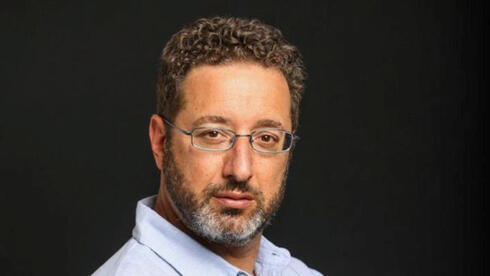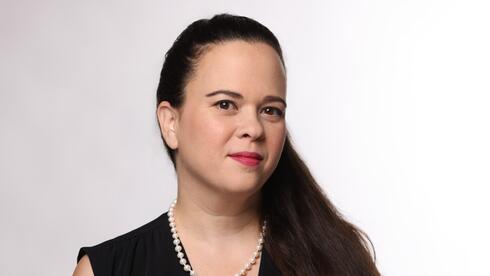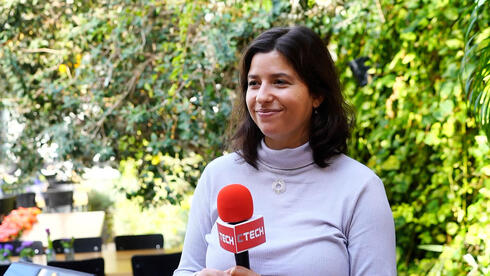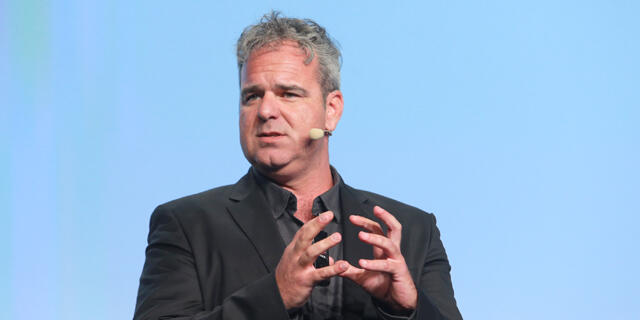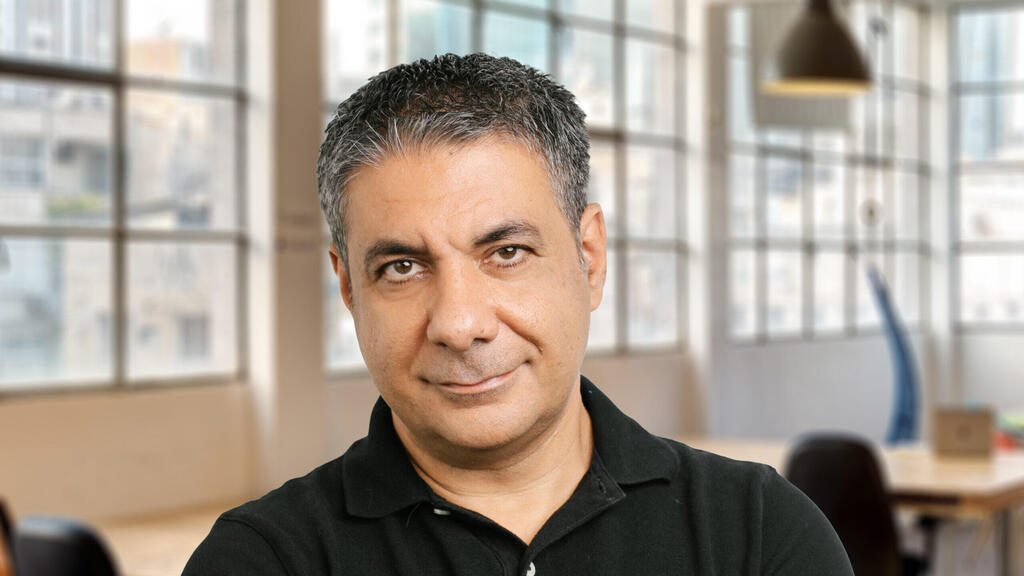
2025 VC Survey"Israel is well-positioned to not only participate in the global AI arms race but also to define its trajectory"
2025 VC Survey
"Israel is well-positioned to not only participate in the global AI arms race but also to define its trajectory"
“Israel’s local industry must focus on five key areas,” writes lool ventures General Partner Yaniv Golan for CTech’s 2025 VC Survey.
“Israel is not missing out on the AI revolution in the global arms race; it is, in fact, a leader, particularly in military applications,” said lool ventures General Partner Yaniv Golan. “With over 1,500 active AI startups and significant government backing, Israel ranks third globally in AI startup activity, trailing only the U.S. and China.”
lool ventures joined CTech for its 2025 VC Survey to share some insights as the Israeli ecosystem prepares for the next year. New leadership, ongoing war, and a race to AI dominance - what can we expect to see?
“By combining its military expertise, commercial innovation, and strategic investments, Israel is well-positioned to not only participate in the global AI arms race but also to define its trajectory in defense, climate tech, and beyond,” he continued. “However, maintaining momentum will require continued R&D investments, global partnerships, and leadership in both ethical and technical dimensions of AI.”
He outlines five key areas where Israel can take advantage of the AI revolution in 2025. You can see the answers below.
Fund ID
Name of fund/funds: lool ventures
Total sum of the fund: $200M AUM
Partners: Avichay Nissenbaum, Yaniv Golan, Maya Azoulay
Notable/select portfolio companies (active): Beewise, Flip, NoTraffic, Eleos, Atero, NeoLogic, Control Monkey, ai.work, Chiral Energies, NewMoo, BioRaptor, Lightico, SiteAware
Notable exits: Voca (acquired by Snap), Wibbitz (acquired by Vimeo), Zooz (acquired by PayU), Mabaya (acquired by Criteo), MarketMan (acquired by PSG), Shopial (acquired by Magento), Talenya (acquired by Paycor)
2024 is almost over. How can you summarize it in terms of the Israeli high-tech industry?
2024 has been a year of resilience for the Israeli high-tech sector, which faced dual crises: geopolitical tensions from the "Swords of Iron" war and continued political unrest related to judicial reforms. Despite these challenges, Israel’s tech ecosystem demonstrated adaptability, raising $8.1 billion in funding—a stabilization compared to the significant decline in 2023.
Looking ahead to 2025 - What challenges and opportunities await the Israeli high-tech sector in the coming year, and how are you, as investors, preparing for them?
Challenges: Startups may face continued pressure on valuations, with down rounds expected for many raising capital. Geopolitical risks and global competition add complexity
Opportunities: Israel's tech ecosystem is poised to capitalize on a dynamic range of opportunities in 2025, with significant emphasis on AI, quantum computing, and climate tech, alongside its well-established leadership in cybersecurity and defense technology. AI remains a cornerstone of innovation, with Israeli startups leveraging unique datasets and expertise to drive advancements in generative AI, analytics, and automation, while quantum computing emerges as a frontier for breakthroughs in cryptography, simulation, and next-generation computing capabilities.
Climate tech, particularly in alternative proteins, renewable energy, and energy efficiency, is garnering global attention as the world pivots toward sustainability, making Israeli innovations in water-tech, carbon reduction, and sustainable food production increasingly valuable. Deep tech fields like advanced materials and bio-convergence are gaining traction, blending biology with engineering to transform pharmaceuticals, diagnostics, and healthcare. These developments align with the growing emphasis on ESG (Environmental, Social, and Governance) investment, as investors prioritize sustainability-driven solutions.
Meanwhile, the IPO market shows signs of revival, offering high-potential startups new pathways to scale as global markets stabilize. Together, these sectors underscore Israel’s strength as a hub for transformative technologies that address some of the most pressing global challenges while creating robust opportunities for growth and investment.
How do we prepare for them: At lool ventures, we approach 2025 with a strategic focus on adapting to the profound changes driven by AI, ensuring that our investment strategy stays ahead of the curve. A key area of focus is investing in companies that address the evolving infrastructure needs of AI, particularly those that lower compute costs and energy requirements while enabling scalable, efficient growth. Beyond cost reduction, we are actively identifying solutions that anticipate the emergence of a completely new software stack tailored to AI’s transformative potential. This includes supporting startups building foundational tools and frameworks for the next wave of AI-driven applications, preparing the ecosystem for a paradigm shift in software development and utilization. Our continued investments in deep tech, biotech, and food tech align closely with these trends, leveraging AI to drive breakthroughs in bio-convergence, sustainable food systems, and renewable energy. At the same time, we emphasize preparing our portfolio companies to navigate a recovering IPO market and take advantage of strategic M&A opportunities. By fostering innovation that addresses critical needs and shaping infrastructure for the future of AI, lool ventures positions its investments to not only thrive but lead in a rapidly evolving global landscape.
How will new American leadership affect the global high-tech industry or economy? And where does this place Israel and its entrepreneurs?
The transition to new American leadership, particularly with a strong emphasis on reshaping global tech policies, is poised to significantly influence the high-tech landscape. Policies are likely to pivot towards bolstering domestic innovation, strategic sectors like semiconductors, clean energy, and defense, and potentially more protectionist trade practices.
This duality creates opportunities and challenges for Israeli entrepreneurs. On the one hand, Israel's established leadership in AI, cybersecurity, and renewable energy positions it as a critical partner for U.S.-led initiatives, particularly as both nations prioritize advanced technologies and sustainable solutions. On the other hand, increased tariffs, "Made in America" initiatives, or shifts in federal funding priorities could lead to heightened competition and barriers for Israeli startups aiming to expand in the U.S. market.
Israeli entrepreneurs must focus on integrating into U.S. supply chains and addressing emerging priorities, such as infrastructure for AI, scalable quantum computing solutions, and climate tech innovations like alternative proteins and energy-efficient technologies.
Strengthening ties in cybersecurity and defense—areas with shared strategic interest—will also be vital. However, adaptability will be key: startups must prepare for potential regulatory shifts in areas like data privacy and intellectual property while leveraging Israel’s deep pool of talent and strong ties with U.S. tech giants. By focusing on high-impact, differentiated solutions, Israel can remain a pivotal player in the evolving global tech ecosystem, even as the U.S. tech landscape undergoes transformative changes.
What are the three most important things the Israeli government should do today to accelerate the high-tech engine in the coming year?
- Enhance Investment Incentives and Funding Accessibility: The government should expand and strengthen investment incentives, such as extending the Law for Encouragement of Knowledge-Intensive Industry and introducing targeted tax benefits for startups that export technology. Lowering corporate taxes for tech exporters and creating streamlined funding programs focused on seed, pre-seed, and Series A rounds would ensure that early-stage startups have the capital needed to innovate and scale. These efforts would also encourage new startups to register and grow domestically rather than relocating abroad.
- Expand Talent Pipelines and Workforce Development: Addressing the skilled labor shortage is critical. The government should heavily invest in education, focusing on STEM fields like mathematics, computer science, and engineering, while implementing programs to bring underrepresented populations, such as ultra-Orthodox and Arab communities, into the tech workforce. Efforts should also aim to attract international talent and retain highly skilled workers by creating incentives for long-term engagement with Israel’s tech ecosystem.
- Ensure Political and Economic Stability While Boosting R&D: Stability is key to regaining foreign investor confidence. The government should prioritize clear messaging about Israel’s reliability as a tech investment destination. Additionally, increasing R&D funding for emerging fields like quantum computing, bio-convergence, and renewable energy is essential for maintaining global competitiveness. Creating incentives for multinational corporations to establish or expand R&D centers in Israel would further solidify the country's position as a global tech leader. By focusing on advanced technologies and sustainable solutions, the government can ensure long-term growth and resilience in the high-tech sector.
Are there new sectors you see as relevant? Are there any fields you anticipate will weaken significantly in the coming year?
New relevant sectors include AI infrastructure, bio-convergence, and climate tech, with a focus on renewable energy, alternative proteins, and energy-efficient solutions. Quantum computing is also emerging as a key area, particularly as it promises transformative advancements in cryptography and computational capacity. These sectors are well-positioned to attract global investment due to their alignment with ESG priorities and the increasing demand for solutions to global challenges.
Conversely, traditional vertical software solutions may face headwinds, as the rise of AI transforms how software is developed and consumed. Startups in this field will need to adapt their models to align with AI-driven needs, or risk falling behind.
Is Israel missing out on the AI revolution in the global arms race? If not, what should the local industry focus on to join the global race?
Israel is not missing out on the AI revolution in the global arms race; it is, in fact, a leader, particularly in military applications. With over 1,500 active AI startups and significant government backing, Israel ranks third globally in AI startup activity, trailing only the U.S. and China. The Israeli Defense Forces (IDF) have successfully integrated AI into operational strategies, including autonomous systems, intelligence analysis, and targeting, as evidenced by initiatives like Project Lavender and the deployment of AI-driven decision-making platforms in real-time combat scenarios. The second phase of the National AI Program and the government’s NIS 5 billion investment in AI R&D further cement Israel’s position as a frontrunner.
To fully capitalize on the AI revolution, Israel’s local industry must focus on key areas:
- Infrastructure for AI: Developing technologies that reduce compute costs and energy consumption while scaling AI applications effectively. This includes investing in supercomputing capabilities and next-generation data centers.
- Next-Generation AI Software Stacks: Innovating tools and frameworks that anticipate and support emerging AI-driven applications across civilian and military domains.
- Specialized Applications: Leveraging unique strengths in natural language processing, Semitic languages, and cybersecurity to create solutions tailored to global and regional needs.
- Ethical AI and Governance: Establishing leadership in responsible AI use by developing robust ethical guidelines and regulatory frameworks, which can enhance international trust and collaboration.
- Education and Human Capital: Expanding AI-focused training programs in academia, military, and industry to ensure a steady talent pipeline.
By combining its military expertise, commercial innovation, and strategic investments, Israel is well-positioned to not only participate in the global AI arms race but also to define its trajectory in defense, climate tech, and beyond. However, maintaining momentum will require continued R&D investments, global partnerships, and leadership in both ethical and technical dimensions of AI.
Could the global IPO drought end in the coming year?
The global IPO market is showing signs of revival, particularly for high-potential sectors like AI, climate tech, and renewable energy. Macroeconomic stabilization and increased investor confidence could lead to more IPOs, particularly in the U.S., and Israeli startups are well-placed to benefit from this trend. Companies that have demonstrated scalability and resilience, particularly in transformative sectors like AI infrastructure and alternative proteins, are likely to be among the first to take advantage of this recovery. However, M&A remains a strong alternative, with many startups preferring strategic acquisitions given continued market volatility.
From an investor's perspective: will the coming year be better for early-stage startups or more mature companies?
It’s hard to pick a clear winner for 2025 because both early-stage startups and mature companies face very different realities—and opportunities. Mature companies with established customers and proven models have a strong advantage in this cautious funding climate. Investors are showing a clear preference for lower-risk bets, especially in sectors like cybersecurity, where companies are already scaling and dominating. The trend toward larger funding rounds—mega-rounds made up over half of total private funding in 2024—also favors these more developed businesses. That said, mature companies could struggle with challenges like operational disruptions (e.g., reserve duty affecting teams), tougher valuation pressures, and geopolitical risks.
Early-stage startups, on the other hand, continue to show their resilience. Despite the broader economic downturn, seed-stage funding actually grew in 2023, which tells us that investors still believe in bold, transformative ideas. This is especially true in high-potential areas like AI infrastructure, quantum computing, and bio-convergence. Historically, the Israeli ecosystem thrives under pressure, and we’re seeing innovation emerge from current challenges, particularly in health tech, defense technology, and climate-focused solutions. At lool ventures, we’re actively leaning into these sectors, where early-stage innovation often creates the most impactful breakthroughs.
Both groups have their strengths, but if you’re asking where we’re most excited, it’s in early-stage startups. They might not get the same share of funding, but they’re the ones driving the next wave of transformative ideas. Mature companies will still command big funding rounds, but early-stage innovation is where we see the spark—and where we want to be.
Did you raise fund money in 2024 for an existing fund or a new one? What are your expectations regarding this matter for 2025?
We did not need to raise in 2024, as we are still in the investment period of lool ventures III.
How many investments did you make in 2024, and how does it compare to previous years?
We made 9 investments in 2024. This is similar to the number of investments we made in 2023.
Provide an example of an intriguing investment you made in 2024. What sets this company apart, or what is distinctive about its sector?
Cassidy is a biotech innovator revolutionizing genome editing with AI-driven gRNA optimization technology. Their proprietary AI predicts DNA repair outcomes, enabling the design of precise and efficient guide RNAs for CRISPR-Cas systems, significantly reducing the time and costs of therapeutic development.
What sets this company apart is its ability to seamlessly integrate AI and biotech, offering unprecedented precision in addressing complex genetic disorders. Positioned within the $21 billion genome editing market, their technology is poised to redefine standards in precision medicine and personalized therapies, making 2025 a pivotal year for scaling its impact globally.
Two notable companies that you think will thrive in 2025. These can be from your portfolio or not.
Company Name: NeoLogic
Sector: Semiconductor Technology / AI Infrastructure
Description of Product/Service: NeoLogic develops next-generation AI data center processors using its proprietary Quasi-CMOS technology. This innovation delivers groundbreaking improvements in power, speed, and area (PPA) efficiency, reducing power consumption by up to 25% while enhancing performance. NeoLogic’s processors address the increasing computational demands of AI-driven workloads in data centers, offering sustainable solutions for cloud providers and advancing beyond traditional semiconductor design limitations.
Investment amount + total: Undisclosed
Founding Year: 2021
Reasoning why this is their year: NeoLogic is transforming the semiconductor industry with its proprietary Quasi-CMOS technology, which delivers groundbreaking improvements in power, speed, and area (PPA) for AI-driven data centers. By reducing power consumption by up to 25% and significantly improving chip performance, NeoLogic addresses the rising operational and environmental costs faced by data centers globally. With strategic partnerships with industry leaders, NeoLogic is positioned to leapfrog Moore’s Law, creating processors that are not only more efficient but also future-proof.
Company Name: Dono
Sector: Property Technology (PropTech) / Real Estate Transactions
Description of Product/Service: Dono leverages advanced AI to optimize property transactions by streamlining processes like title searches, fraud prevention, and ownership verification. Its platform provides tailored modular pricing for high-value clients and integrates financial data to enhance operational efficiency. Dono's solutions help title companies and insurers reduce costs, improve accuracy, and manage property transactions more effectively, redefining the real estate transaction lifecycle.
Investment amount + total: Undisclosed
Founding Year: 2023
Reasoning why this is their year: Dono is revolutionizing the property transaction ecosystem through advanced AI-driven solutions. The platform enhances efficiency in title searches, fraud detection, and ownership verification, addressing some of the most persistent challenges in the real estate industry. By offering tailored modular pricing for high-value clients and partnering with financial data providers, Dono has already gained traction among leading U.S. real estate firms.



